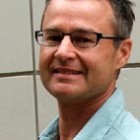Haiti’s 2010 earthquake and the billions of “reconstruction” dollars that followed offered humanitarian agencies and international businesses access to multiple opportunities for profit. Haitian and foreign commercial news media could not – or would not – watchdog the billions of dollars and hundreds of projects. Could Haitian “alternative” and community media fill the gap?
Two small media institutions – an online “alternative” news agency and a community radio training group, coordinated by a veteran international journalist – launched the Haiti Grassroots Watch partnership to give it a shot. Steered by the tenets of the early Western journalism and influenced by investigative journalism practices from Africa as well as the U.S., but also guided by Latin American “comunicación popular” theory and by Paolo Freire’s contributions on dialogic teaching and learning, the collaboration also builds on lessons learned from U.S. “networked journalism,” and from the investigative units and “new news labs” at U.S. universities. The result is a multimedia and multi-language collaboration, grounded in progressive community radio stations whose members have unique access and perspective, and based largely on the work of idealistic journalism students, who – like medical students – learn as they contribute.
The evolving experiment includes a university course, training sessions at community radios, as well as screenings in rural communities and poor neighborhoods where audiences engage in a kind of low-tech “crowd-sourcing” for story ideas. Capacity building is part of every step and content creation – text, audio and video – is uniquely informed by its participatory processes, by its grassroots origins and by the oversight of professors. Can the Haiti Grassroots Watch model be replicated at universities in other countries on the receiving end the billions of dollars in humanitarian and development aid doled out each year? This paper examines the project’s conceptual and theoretical underpinnings, its successes, and its challenges, and will hope to inspire similar efforts in the “global South.”


